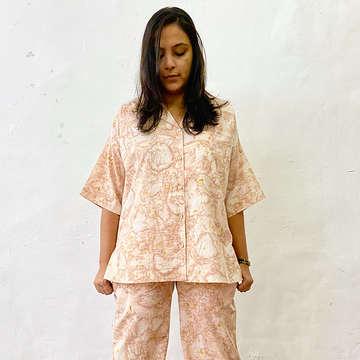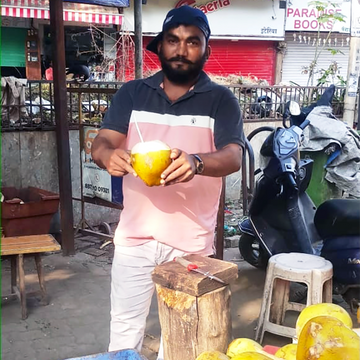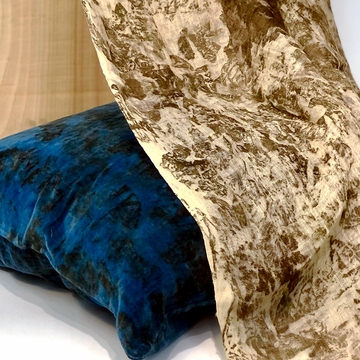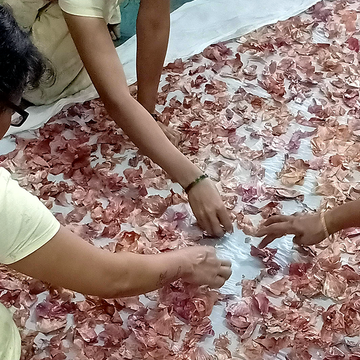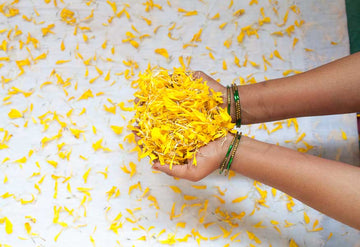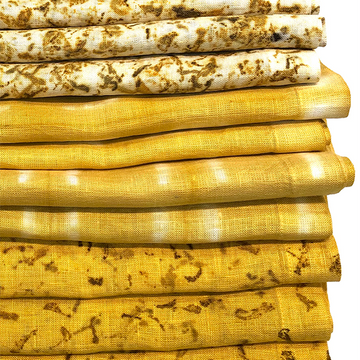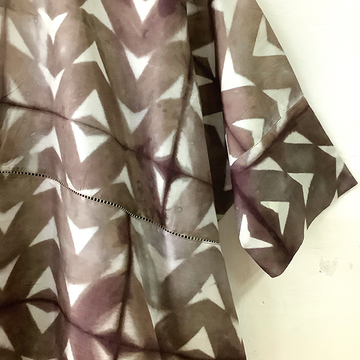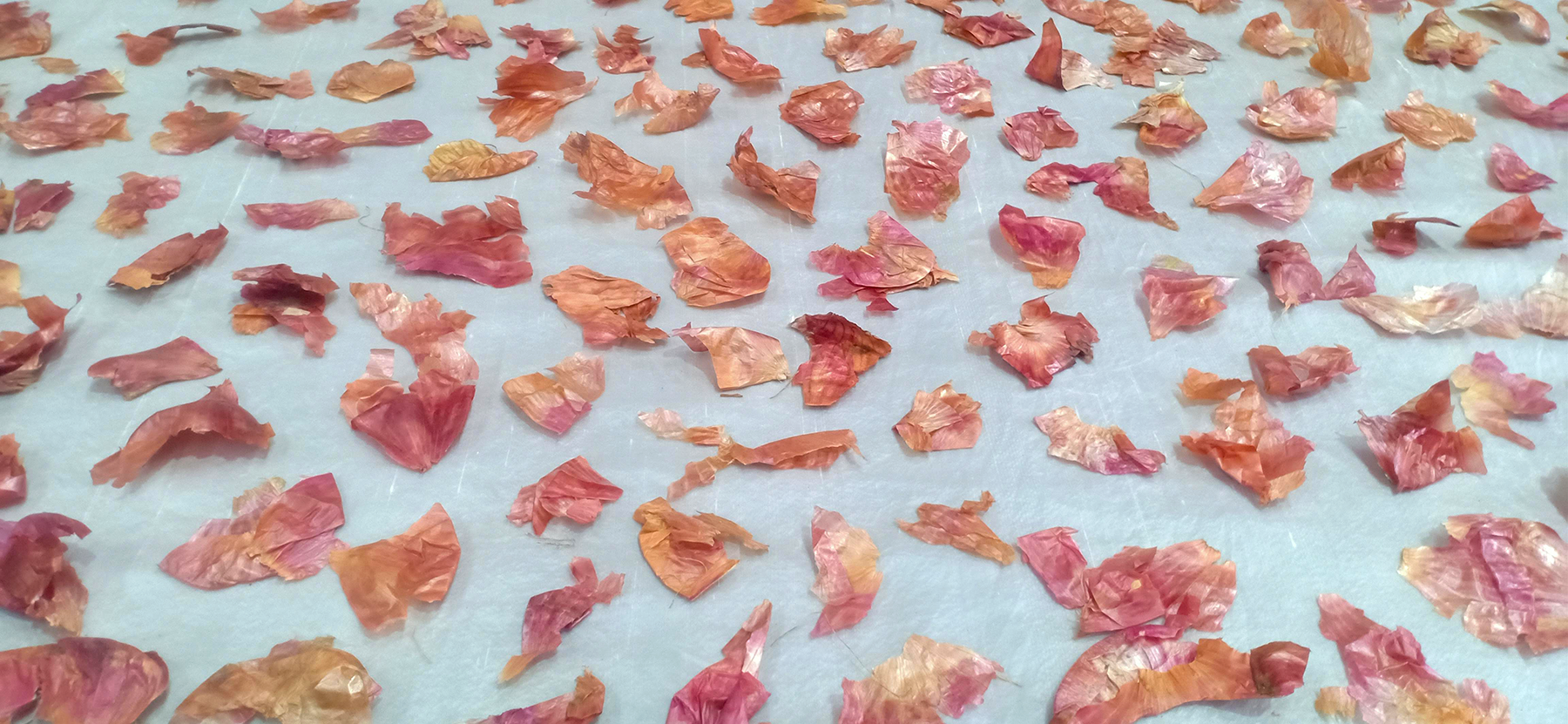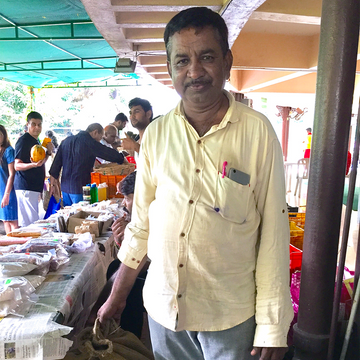
Onion Peel Project
Natural dyers across the globe use onion peels create exciting ranges of brown hues, ranging from deep ochres to luminous metallic shades when dyed on silk. Since onions are such a common part of many Indian diets, we wanted to find a way to use the leftover peels at a large scale in our work. We partner with organic onion farmers from Nasik to collect the dried peels which are otherwise thrown out. Adiv collects the peels directly from them and uses them for eco prints and solid dyes.
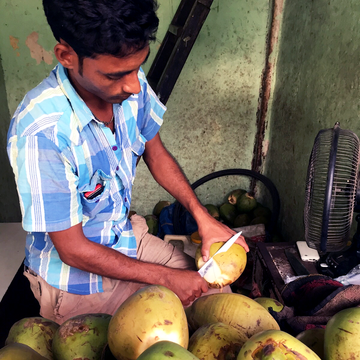
Recycling Coconut Rinds
Mumbaikar’s love fresh coconut water. It is so refreshing to drink the cool water directly from the green coconut, and many street vendors set up stalls all over the city and thus discard considerable quantities of rinds every day. In addition to providing nutritious juice, coconut rinds hold a delightful secret; they create pink dye! The loveliest soft pinks and blushes are revealed when coconut rinds are gently steamed onto cloth. We still get excited seeing this unexpected pink seep from the green rinds.
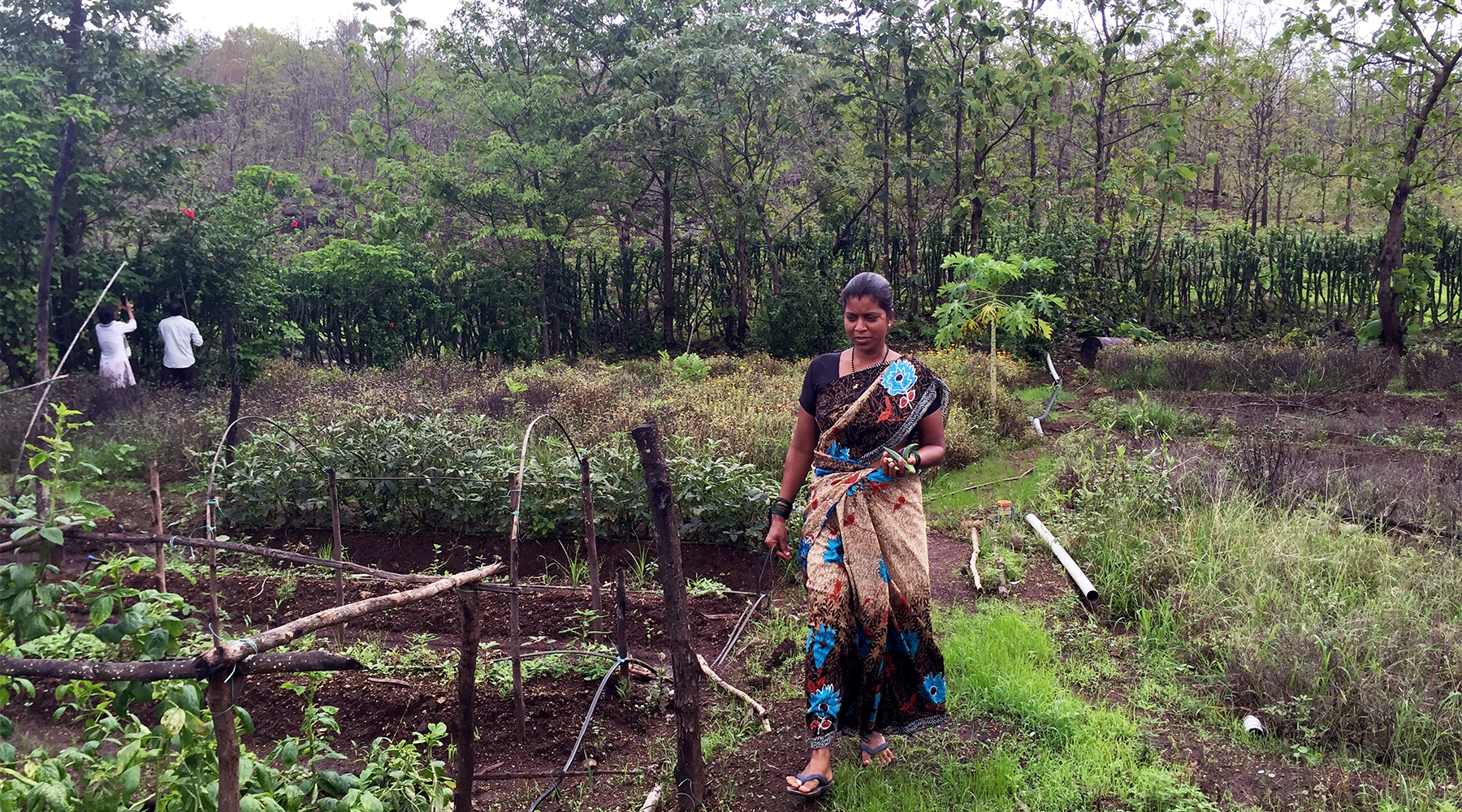
Organic Farming in Ganeshpuri
The village of Ganeshpuri 80 km north of Mumbai, is a spiritual and energy center where Rupa, Adiv’s founder, spent many happy hours as a child. She credits temple rituals performed there as her first glimmer of what was later to become Adiv’s Temple Dye Project.
Historically, the lush, green valley surrounding Ganeshpuri, held sacred by so many, sustained Adivasi farming families with its fertile soil and climate. As industry encroached into the valley, many farmers gave up on subsistence farming for steady work in brick factories, leaving the land to lay fallow. More recent education about organic farming has given some farmers the chance to reactivate their small plots of land, and produce value added produce for emerging markets. Adiv supports this organic farming effort in Ganeshpuri and returns full circle to Rupa’s roots.
Organic farming requires all pesticides to be natural. As luck would have it, marigold plants are an effective pesticide, and are often planted along with vegetable crops to repel bugs. After produce crops are harvested, Adiv purchases these organic flowers which would otherwise go to waste, or be sold for a pittance locally. During the pandemic, it has been difficult to get flowers from the temple, and we are grateful to have our homegrown flowers from Ganeshpuri.
